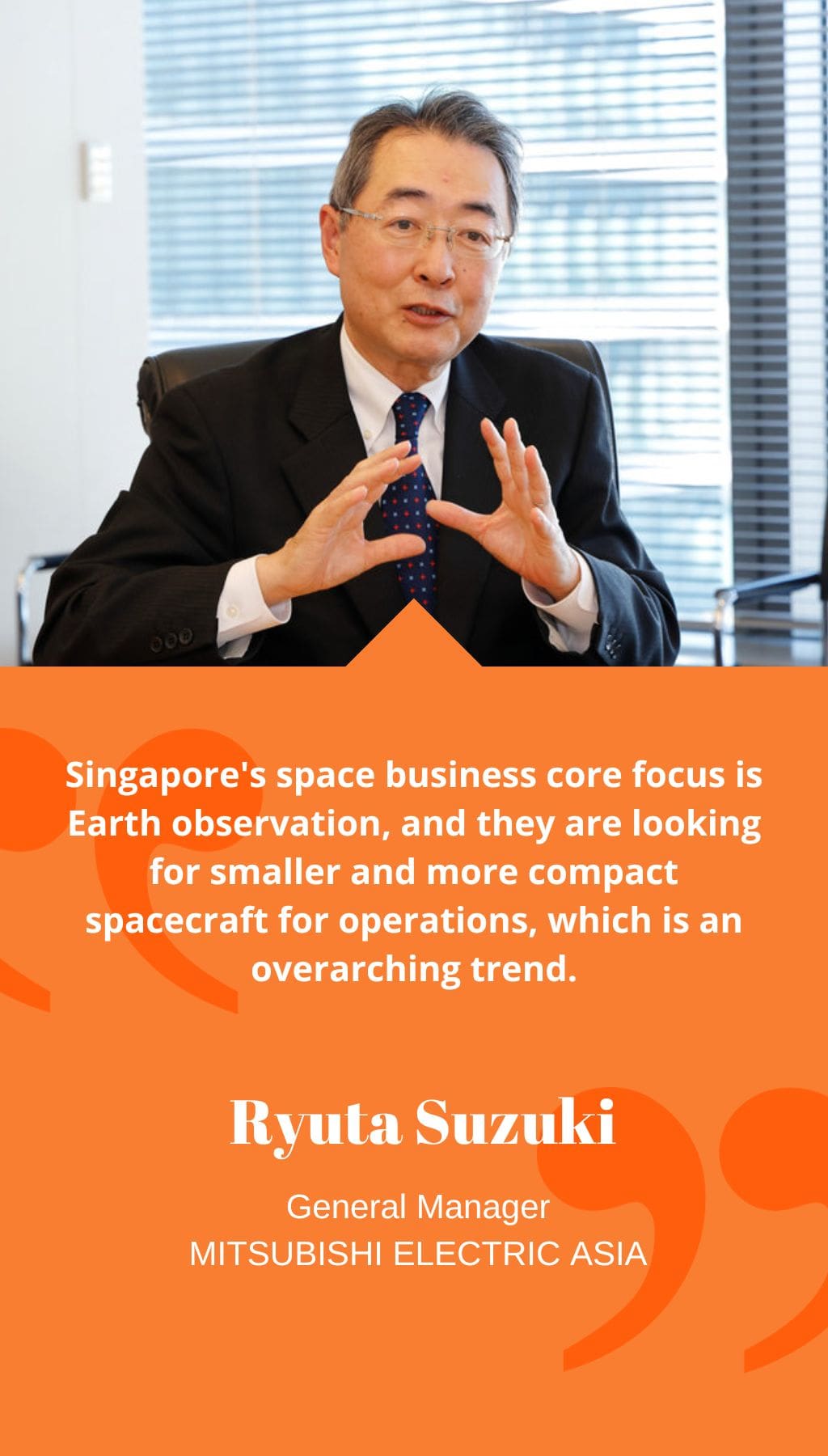
- Singapore | 7 May 2019

Could you please elaborate on your goals for Mitsubishi Electric Asia?
Mitsubishi Electric Asia’s primary focus is on the space sector, which we consider to be one of the growing sectors within our business. As a representative office for our space business, we meet with customers and assist our headquarters in Japan to negotiate satellite deals. Our aim is to continue growing through ongoing investment and product lines.
We promote our products via conventions and conferences, and we have an important focus on the space sector. In addition to our space division, Mitsubishi Elevators is another division within our company that specializes in escalators and elevators exclusively.
One of our significant accomplishments is the development of our satellite standard platform called DS2000, which has been implemented on many civil and commercial satellites. We are planning a development program to enhance our spacecraft capabilities with the aim to double our capacity by 2021. In the next 3-5 years, we hope to provide powerful and compact HTS (high-throughput satellite) to all of our satellite customers by completing this development.
We expect demand for satellite clients in the Asia Pacific region to increase in the longer term, and Singapore is conveniently located to travel to other countries in the region. Our vision is not just for Singapore, but for Asia Pacific and India.
How is Mitsubishi Electric involved with Singapore’s space sector, and what services do you offer in it?
Mitsubishi Electric’s space department in Singapore started operations about 10 years ago, mainly to promote our space products within the SEA and AP regions. Singapore’s space business capacity is somewhat limited, but they are very active in the field of observation satellites and nano-satellites. Our company is also actively involved in Earth observation, satellite positioning, communication satellites, and even explorers to the Moon or Mars.
Singapore’s space business core focus is Earth observation, and they are looking for smaller and more compact spacecraft for operations, which is an overarching trend. Many companies are launching small and high-performance Earth observation satellites. Since Mitsubishi Electric also has many experiences in Earth observation spacecraft, we may be able to provide some space units and components for spacecraft being manufactured at the universities or by a manufacturer.
What is the importance of implementing Industry 4.0 processes in the manufacturing space business?
The goal of automation within the space business is to revolutionize the way in which we manufacture satellites, because they have to be produced cheaply. It is becoming increasingly important to automate some of the processes that are currently undertaken manually. Though this evolution is not taking place at a global scale yet, I believe that it will inevitably happen very soon. Additive manufacturing will become much more focused than it is presently.
The revolution for spacecraft manufacturing processes has already started with the introduction of 3D printers. If this is implemented in a more aggressive way, perhaps in five to 10 years we may see more complicated and compact spacecraft being manufactured by 3D printers.
Could you describe how Mitsubishi Electric applies the Singapore Government’s encouragement for businesses to develop their own IP products to the space sector?
Mitsubishi Electric produces everything in-house in terms of the space business. We have our engineers, product line, manufacturing facilities, and test facilities. However, it is important to create an engineering center that can interact directly with the customer to understand their satellite needs and develop draft plans that reflect this. We could then relay the information back to the factory to build the products.














